Master Degree in Health Professions of Technical Sciences (Diagnostic)
Location: Ancona - via Tronto, 10/a
Access: Planned at national level
Order: D.M. 270/04
Type: Second Cycle Degree (2 years)
The course of study in short
Health Professions of Technical Sciences (Diagnostic)
The development of the formative course takes into account the fact that graduates of the Master's Degree Course in the Health Professions of Diagnostic Technical Sciences, in accordance with article 6, paragraph 3 of Legislative Decree 30 December 1992, n. 502, and subsequent amendments and additions and pursuant to the Law of 10 August 2000, n. 251, article 1, paragraph 1, must achieve advanced cultural and professional training to intervene with high skills in care processes, management, training and research in one of the areas relevant to the different health professions included in the class (technical-diagnostic area: audiometrist technician, biomedical laboratory health technician, biomedical radiology health technician, neurophyopathology technician). The various courses are divided into modules and are carried out with lectures, exercises and laboratory experiences. The learning results are evaluated with an oral or written exam, an opportunity for verifying the achievement of the objectives set, unique and contextual for each course, necessary for the acquisition of training credits. The acquisition of cognitive skills is achieved through the carrying out of the practical internship and the realization of laboratories that allow the achievement of the characterizing training objectives corresponding to the different professional profiles related to the technical-diagnostic area and therefore in health contexts where the student can experience the knowledge, methodologies and techniques learned, together with the acquisition of behavioral and relational skills necessary to move in complex work environments. In this regard, it is evident the importance assigned to internship experiences, in line with the standards provided by the legislation, where the student can experience a gradual assumption of autonomy and responsibility with the supervision of experts, both in a protected situation (workshops) and in real situations (practical internship). The evaluation of these skills is carried out with internship checks, exams and with the final test.




